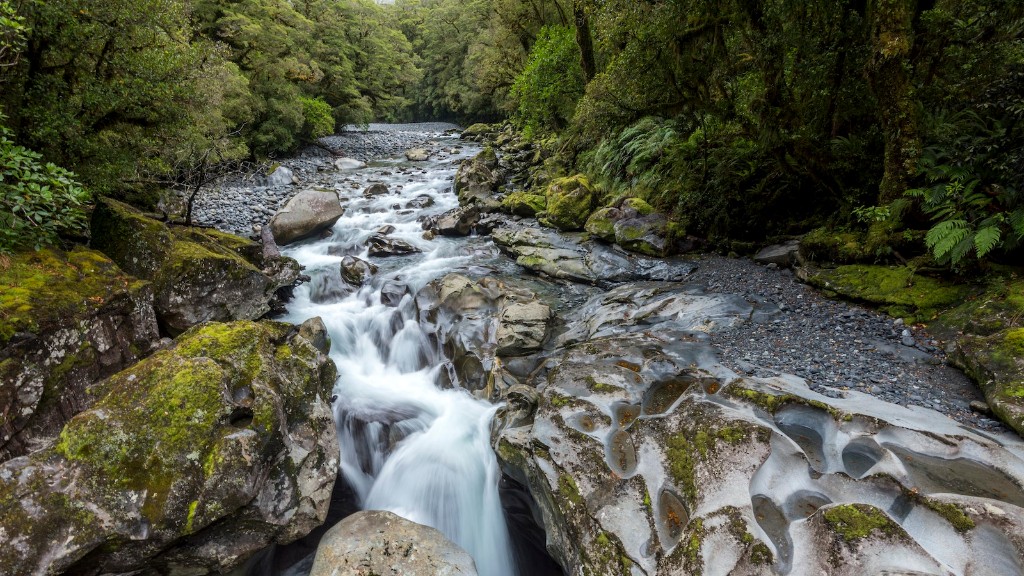The Nile River, in ancient Egypt, was the lifeblood of the civilization, providing water for agriculture and other aspects of life that allowed the civilization to succeed. Even today, the potential of the Nile is still remarkable since it could, when managed correctly, provide water and energy to many places and countries along its course. But why is the Nile river so important to Egypt?
Travelling from its sources in the Great Lakes of Central Africa, the longest river in the world, 4,258 miles, is a lifeline for millions of people, in particular for the 90 million Egyptians who live within Nile’s basin. The Nile is of great strategic importance for the country – for a long time, the Nile has represented a symbol of power, a source of sustenance and a means of controlling the land it courses through.
The Nile has provided water for the sustenance of the Egyptian people since the time of the pharaohs. Thanks to its waters, the country has prospered and the land close to the river is highly fertile and has been used for productive farming and food production in ancient times. In fact, most of the ancient settlements and cities in Egypt are located alongside the banks of the Nile.
Besides being a source of sustenance and livelihood, the river was also used for transportation. This was of particular importance, considering the topography of Egypt. With few outlets to the sea and no sizeable rivers, the Nile provided the only practical means of transport for goods and passengers. Goods from far-away lands were brought to Egyptian cities with the help of the river and many foreign merchants used it for their trade. Since there were no bridges or causeways, the river played a major role in connecting the land.
In modern times, the Nile has become an important source of energy thanks to its capacity for generating hydroelectric power. The recent resurging of the Nile has been attributed to the various dams and reservoirs constructed by the Egyptian government with the help of foreign funding. This, in turn, has offered a cushion for the country in times of drought and famine.
The political prosperity of Egypt has also been determined by the control of the Nile’s waters. This can be illustrated by the negotiations between the African countries and Egypt over the waters of the Nile, the result of which have had significant impact on current and future politics of the region. Moreover, the health of the Nile is closely monitored as a source of wealth and power because any disruption can and often has had serious implications within the region.
Religion and Rituals
The Egyptians believed that the gods created the Nile and attributed the yearly flooding season of the Nile to the raising of the god Hapi by the divine king of the gods, Osiris. This connection to religion led to many rituals and offerings being made on the river banks. The river was also closely related to the god of fertility, Min, and the god of death, Osiris—the god whose cult centered in Abydos, a city on the west bank of the Nile.
The gods of the Egyptian pantheon, such as Ra and Hapi, were closely linked to the river and considered its protector who kept the water levels stable and in order. The belief that the river was the domain of the gods meant that the people of Egypt understood the importance of fertility and its connection to the river.
The flooding of the Nile was closely associated with fertility and the wellbeing of the country and its people. People believed that any deviation from traditional levels of flooding would be seen as a sign of the gods’ displeasure with the Pharaoh and therefore of the country as a whole. This induced a sense of responsibility that provided a strong incentive for the people of Egypt to best manage the precious resource of the Nile.
Agriculture
Agriculture was a major aspect of life in Egypt due its staple crop production on the Nile’s banks. The presence of the Nile not just provided the country with enough water for irrigation but its presence also stopped the desert from encroaching on the precious land of the country. Moreover, the presence of the river allowed the growth of a variety of rich vegetation across the countryside. This made it easier for the ancient Egyptians to produce a variety of crops and also lended to their rich cuisine.
The importance of the Nile’s waters to agricultural purposes can be seen in the ancient writings of the Testament of Ptah-Hotep, which states: “Grain must not depart from the river, or cease to benefit the people”. The phrase “grain must not depart from the river” still applies to this day and signifies the importance of the water to the people of Egypt. Farmers use the water of the Nile to irrigate their land which in turn helps them produce their staple crops.
In addition to its importance for the agricultural sector, the Nile air to air translations like military gave the Egyptians an incomparable advantage. The ability to navigate the Nile would give the army a fast and safe method of transportation as well as the ability to maneuver and scout efficiently. This helped the ancient Egyptians in their conquest of much of the Middle East, including the southern regions of Syria, Palestine, and Israel.
Economic Significance
The economic significance of the Nile to Egypt cannot be overstated. Historically, the waters of the Nile provided the people with a means of transportation, which was extremely important in the smaller, more remote villages. This made it easier for goods and services to be transported across the country, increasing the efficiency of commerce in the region.
Moreover, its significance as an international waterway is vital to the commerce of Egypt, allowing them to effortlessly transport goods through the Mediterranean Sea. Trade with other countries also depended on the river, making the Nile both an influential player in the economy of Egypt and the heart of the region’s international trade.
The Nile also served as a source of income for the country. In more recent times, the influx of tourism has contributed to Egypt’s economy due to the myriad of incredible sites along the river and its course through Egypt. The Nile is also a source of freshwater fish which is a staple of the Egyptian diet.
Conclusion
The Nile River, in ancient Egypt, was the lifeblood of the civilization, providing water for agriculture, transportation and energy, among others. It is still undoubtedly an important source of wealth and power for Egypt and its neighbors, as it has been for thousands of years. It is not difficult to see why the Nile River is so important to Egypt – it has and will continue to provide sustenance, fertility and wealth for many generations.




